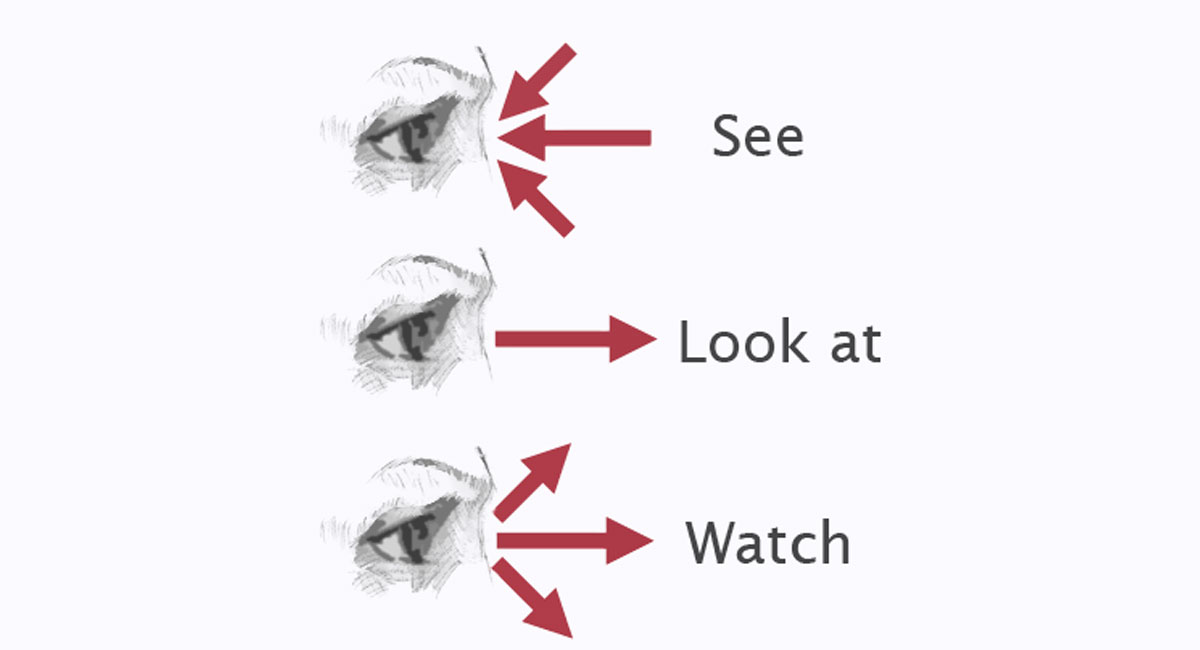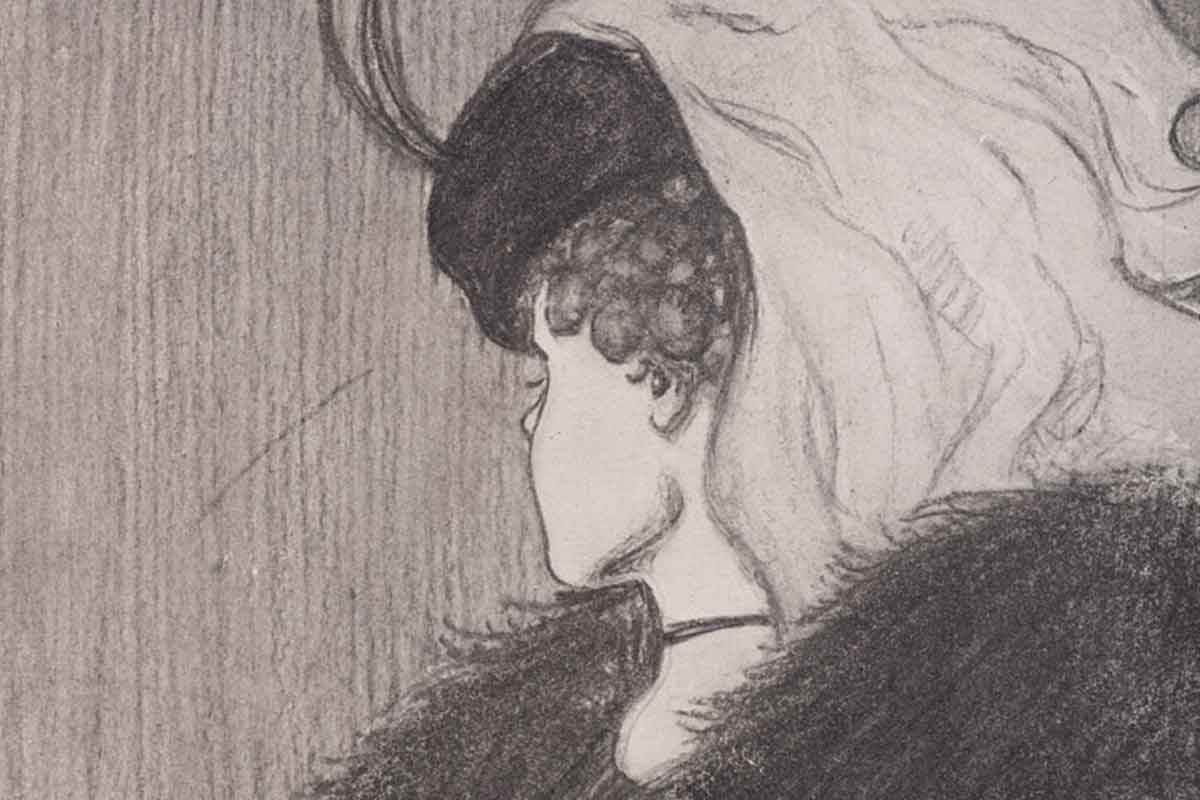
"See", "look at", "watch" の3つ。そのまま訳すとすべて”みる”になりますが、使い方が異なります。一見ややこしそうに感じてしまいがちですが、意外と簡単に使い分けの方法を習得できます。図解をご覧になっていただくと、違いがはっきりとわかると思います。
See
"See" is used to say that some information or picture comes to our eye. Look at the picture above.
A dictionary would say something like this:
"To perceive with the eyes."
"Perceive" means "to sense or be aware of". To stop seeing things, you have to close your eyes. If you look away, you will still see something.
Look at
When you "look at" something, you point your eyes at it so you can see it. Look at the picture above. Something is the target of your eyes.
Dictionaries say this:
"To use sight in a direction, or on an object."
So "look at" is "see" plus some target. To stop looking at something, all you have to do is look away!
Watch
"Watch" is something more than "see" and "look at". "Watch" needs focus and concentration. When we watch something, it changes and things happen. Watching is more active.
The dictionary says this:
"To observe carefully."
Watching usually lasts longer than seeing something or looking at it. When we watch, we focus and think. If you look away, you might miss something!
Compare them
When words are so close in meaning, it helps to think of ways to compare them and examples or cases where they are different.
Sometimes you look, but you can't see.
You look at a tree, but you don't see the birds.
Look at the famous picture below — it is an optical illusion. You can see two images: the wife of the artist and his mother-in-law. Look! What do you see? When you look at an optical illusion, you sometimes see something surprising or different. Do you see a young woman (the wife) or an old woman (the mother-in-law)?

What about when you and your friend are both looking at the night sky:
You: Did you see that! A shooting star!
Friend: No. I was looking, but I didn't see it.
"Look at" and "Watch"
Both of these words have a target. What is the difference? "Look at" might be for a short time. "Watch" means you wait and see if something happens. We use "watch" when things are moving or changing.
Imagine we are at an art gallery. I say, "Look at this!" and you study the painting. You see its details. But, if I say, "Watch this!" then you will think, "Why? Will something happen? Will it move? Or change?"
Idioms
Some confusion can come from the different meanings that these three very common words have. When you look at them closely, you will realise that they mean something more than using your eyes.
Here are some examples to watch out for. Hopefully they will help you to see the point.
| See | 1. understand. | I see what you mean. |
| 2. imagine. | I don't see that you can. | |
| 3. find out. | I'll see what time it starts. | |
| 4. meet. | I saw my friend at the weekend. | |
| 5. date. | We have been seeing each other for six months. | |
| 6. attend as a viewer. | Let's see a movie tonight! | |
| 7. make sure. | See that you finish by 5. | |
| Look | 1. appear or seem. | He looks happy. |
| 2. face. | The house looks over the city. | |
| 3. pay attention. | Look, I think there is a better way. | |
| Watch | 1. guard. | Watch the prisoner! |
| 2. keep up on. | I have been watching the exchange rate. | |
| 3. attend as a spectator. | I will watch the game on Saturday. |
Notes:
- Studying the difference between "hear" and "listen to" will help you with "see", "look at" and "watch". "Hear" is like "see" and "listen to" is like "look at" and "watch".
- There are some idiomatic meanings to these words. These should not confuse you. This article talks about these words and how they relate to using your eyes!
- These three words are a good example of when it is best to try to understand things in English and not to translate them into your native language (if you can). Your language might not have any difference between these three words. We recommend a good learner's dictionary, or leave a comment and ask us!

